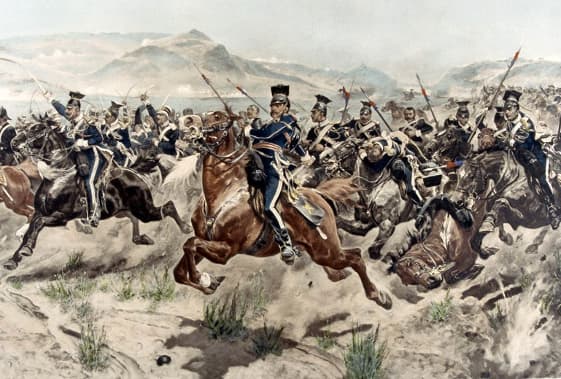The Economic Weapon
There is the larger risk that the Russia sanctions, by in effect weaponizing finance and the greenback itself, might also damage the central role of the American dollar in the global finance system.

Please don’t tell anyone we said this, but there’s a terrific column in the London Financial Times in respect of the economic dimension to this war. Its author, Robin Harding, begins by noting that during the Crimean War, as Britain and France fought Russia in what is now Ukraine, both Russia and Britain kept up with the interest payments on debts the countries owed each other. “Times have changed,” Mr. Harding notes.
Amid today’s severe sanctions on Russia, Mr. Harding writes, “paying debts to the enemy” is out, and the goal “is to paralyze the aggressor’s economy.” That’s even if, like America, “you are not involved in the fighting.” The risks of this strategy are traced in a new book by Nicholas Mulder, “The Economic Weapon,” which is quoted by Mr. Harding on how the international finance system became mobilized as a tool of war.
Decades after the genteel policy of keeping up debt payments during the Crimean War, President Wilson was one of the first to envision sanctions in the modern sense. He called them “more tremendous than war” and “a terrible remedy.” In the aftermath of World War I, the founders of the League of Nations thought they had found in sanctions a “new and powerful kind of coercive instrument for the modern world.”
They hoped to abolish war, yet Mr. Mulder notes how economic sanctions backfired in the lead-up to World War II, hastening rather than avoiding conflict. The sanctions designed to stop Mussolini’s war against Ethiopia served only to drive Italy into alliance with Germany. Tough American sanctions, intended to roll back Japan’s aggression in East Asia, instead led to escalation and the attack on Pearl Harbor.
Today, Mr. Harding is not alone in wondering if the “ruthless and effective” sanctions on Russia will have “unintended consequences for the international financial system.” The concern goes beyond sanctions failing to help Ukraine. There is the larger risk that the sanctions, by in effect weaponizing finance and the greenback itself, might also damage the central role of the American dollar in the global finance system.
The sanctions, Mr. Harding observes, have “stripped away Moscow’s means to stabilize its currency.” Yet President Putin seems to be taking them in stride. On Friday he observed that the “Soviet Union lived all the time under sanctions but it developed and made colossal achievements.” That’s another lesson in Mr. Mulder’s book: that sanctions merely pushed rogue nations inward, toward self-sufficiency.
Worse, sanctioned countries banded together against their tormentors. In 1940, after America cut off oil sales to Japan, Tokyo formalized its alliance with Berlin and Rome. Today,
Red China looks eager, in league with Russia, to supplant America as the leader in global finance. Its renminbi has been “conspicuously stable” amidst the Ukraine war, the FT reports, fuelling “talk that the currency could become a haven asset.”
Yet the scale of the Russia sanctions has now raised the question whether any fiat currency is safe under strict sanctions. “If your dollar-based central bank reserves can be frozen,” Mr. Harding asks, “what is the use in holding them?” That’s a ripe question for Communist China, whose $3.2 trillion in foreign currency reserves “suddenly look more like a weakness than a strength,” in Mr. Harding’s telling.
Mr. Harding even wonders if the mobilization of greenbacks in sanctions against Russia “marks the death of the post-Bretton Woods system,” which began in 1971 when President Nixon cut the link between the dollar and gold. He warns China must become “an issuer rather than a holder of reserves” if it wants to “wrest some of America’s financial power for itself.” He suggests Beijing’s solution is “to persuade others to hold the renminbi.”
Then again, too, Mr. Harding laments the drift “towards the formation of rival economic blocs.” He suggests that fate be avoided by keeping the dollar “at the heart of the international financial system.” We would but note that the one financial system that would actually be above the fray of international conflict would be the one in place when Russia and Britain settled their Crimean War-era debts — the gold standard.

